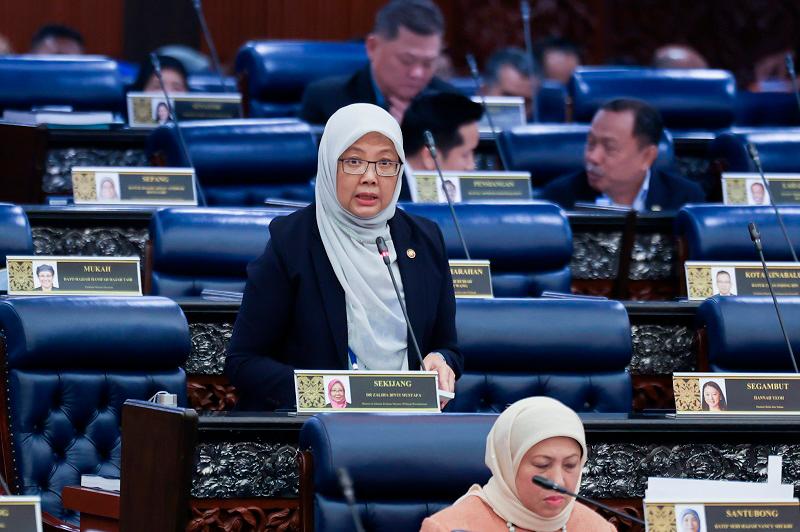KUALA LUMPUR: The full results of the land subsidence incident in Jalan Masjid India and geotechnical assessment report in the surrounding area are in the final stages of being reviewed by the relevant agencies including the Royal Malaysia Police (PDRM) and Kuala Lumpur City Hall (DBKL).
Minister in the Prime Minister’s Department (Federal Territories Dr Zaliha Mustafa said both reports will be first presented to the Cabinet before any decision is made on whether to disclose them to the public.
“The government is always committed to transparency in carrying out investigations and more so when it involves public safety. Therefore, the full results of the sinkhole incident in Jalan Masjid India and its surrounding area are in the final stages of review by various agencies, coordinated by the incident commander, the OCPD of Dang Wangi and DBKL,” she said during the question-and-answer session in the Dewan Rakyat today.
“The geotechnical assessment report involves findings from the use of technologies such as ground- penetrating radar (GPR) and microgravity testing to ensure soil stability in risk areas, including the Central Business District (CBD) of Kuala Lumpur, and this study helps in identifying if there are still areas that might be exposed to sinkholes issues in the future.”
She said this in response to the additional question from P. Prabakaran (PH-Batu) who wanted to know the government’s readiness to disclose the full investigation results of the sinkhole incident in Jalan Masjid India to the public.
On Aug 23, a female Indian national known as G. Vijaya Lakshmi, from Kuppam in Andhra Pradesh, India, went missing after falling into an eight-metre deep sinkhole in Jalan Masjid India.
Replying to Prabakaran’s original question regarding the current safety status following the incident, Dr Zaliha said that based on a study conducted by the Special Task Force, chaired by Kuala Lumpur Mayor Datuk Seri Maimunah Mohd Sharif, Jalan Masjid India is now confirmed to be safe for all forms of activities.
She said it was after considering the collective expert opinions from various agencies including the PDRM, Fire and Rescue Department of Malaysia (JBPM), Public Works Department (JKR), Department of Minerals and Geoscience Malaysia (JMG), as well as professional organisations such as the Institution of Engineers Malaysia (IEM) and Malaysian Geotechnical Society. (MGS).
“Several short-term immediate actions were implemented such as an integrity audit of utility assets in the CBD areas, including Jalan Masjid India where mapping and underground integrity testing were conducted to detect any weaknesses in old assets,“ she said.
“Additionally, the use of technologies such as ground-penetrating radar (GPR) and Mackintosh Probe (MP) are employed to investigate soil structure, where geophysical tests like microgravity and ground settlement monitoring are also used to detect any ground movement or underground cavities,“ she said.
On long-term plans, Dr Zaliha said DBKL will implement in-depth soil investigations involving the use of ‘Deep Boring’ techniques and laboratory tests to ensure soil structure stability, where geotechnical reports by certified engineers will be prepared for identified risk areas.
With regard to compensation for the family of the late G. Vijaya Lakshmi, Dr Zaliha said that out of concern, the government through DBKL has contributed RM30,000 to help the victims’ family alleviate their burden due to the tragedy.
“The victim’s family also received a donation of RM10,000 from a sympathetic private entity which is a social responsibility to help the victim’s family who were traumatised by the loss of their loved one,“ she also said.
“Regarding compensation, the government will not obstruct if the deceased victim’s family wishes to file a claim through legal channels against the relevant agencies,“ she added.









